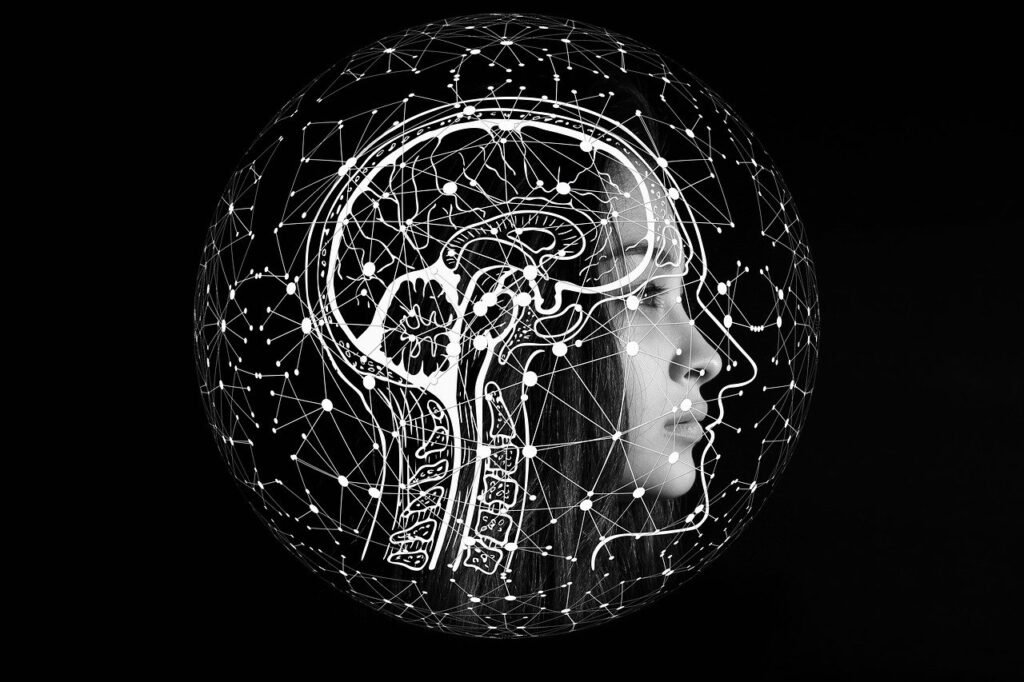Artificial Intelligence: The Future of Technology
Table of Contents
- Introduction
- What is Artificial Intelligence?
- The History of AI
- Types of AI
- Narrow AI
- General AI
- Superintelligent AI
- Applications of Artificial Intelligence
- Healthcare
- Finance
- Transportation
- Education
- Benefits of Artificial Intelligence
- Challenges and Ethical Concerns
- The Role of Machine Learning
- How AI Impacts Everyday Life
- The Future of AI
- Artificial Intelligence in Popular Culture
- Conclusion
- FAQs
Introduction
Artificial Intelligence, often referred to as AI, is a groundbreaking technology that has been making waves in recent years. In this article, we will delve into the world of AI, exploring its history, types, applications, benefits, challenges, and its impact on various aspects of our lives. Join us on this journey to understand the future of technology.
What is Artificial Intelligence?
Cleverly, Artificial Intelligence embodies the creation of computer systems adept at executing tasks that conventionally demand human intelligence. These encompass problem-solving, speech comprehension, the acquisition of knowledge, and the art of decision-making. AI systems are designed to mimic human cognitive functions, making them capable of processing and analyzing vast amounts of data.
The History of Artificial Intelligence
The concept of AI dates back to ancient history, but it wasn’t until the mid-20th century that it gained prominence. Certainly, here’s a unique version of the sentence: “The year 1956 witnessed the birth of AI as a field of study during the Dartmouth Workshop. Since then, AI has evolved significantly, with milestones like IBM’s Deep Blue defeating a world chess champion and the development of neural networks.
Types of Artificial Intelligence
AI can be categorized into three types:
- Narrow AI
- Narrow AI, also known as Weak AI, is designed for specific tasks. Examples include virtual personal assistants like Siri and chatbots used in customer service.

- General AI
- Cognitive abilities akin to those of humans are exhibited by General AI, also referred to as Strong AI. It can understand, learn, and adapt to a wide range of tasks. However, we are yet to achieve true General AI.
- Super intelligent AI
- Super intelligent AI surpasses human intelligence and is purely theoretical at this stage. It’s a topic of intense debate and speculation in the AI community.

Applications of Artificial Intelligence
AI is transforming various industries with its applications. Here are several domains where AI is exerting a profound influence:
- Healthcare
- Artificial Intelligence plays a pivotal role in the realm of healthcare by contributing to disease diagnosis, expediting drug discovery, and offering valuable treatment recommendations. Machine learning models are adept at scrutinizing medical imagery and making accurate predictions about patient outcomes
- Finance
- In the financial sector, AI is used for fraud detection, algorithmic trading, and customer service through chatbots.
- Transportation
- Self-driving cars, traffic optimization, and route planning are areas where AI is revolutionizing transportation.
- Education
- AI-driven platforms personalize learning experiences, offering customized content and recommendations to students.
Benefits of Artificial Intelligence
AI brings a multitude of advantages, such as increased efficiency, accuracy, and the ability to handle repetitive tasks. It also has the potential to save lives through early disease detection.
Challenges and Ethical Concerns
Despite its benefits, AI poses challenges related to job displacement, data privacy, and the potential for misuse. Ethical considerations play a pivotal role in the development of Artificial Intelligence.
The Role of Machine Learning
Machine learning, a subset of AI, plays a pivotal role in AI development. It empowers systems to acquire knowledge from data and enhance their capabilities as time progresses. How AI Impacts Everyday Life.
AI in Everyday Life
From voice assistants like Alexa to recommendation algorithms on streaming platforms, AI is an integral part of our daily lives. It streamlines tasks and elevates user experiences. Artificial Intelligence has become an integral part of our daily routines. It helps us navigate the world more smoothly and efficiently. Here are some everyday applications:
- Smart Assistants: Voice-activated virtual assistants like Siri and Alexa help with tasks, answer questions, and control smart devices.
- Recommendation Systems: Services like Netflix and Amazon use AI to suggest movies, products, and music based on your preferences and behavior.
- Navigation: GPS apps use AI to provide real-time traffic updates and alternative routes.
- Social Media: AI algorithms determine the content that appears in your social media feed, showing you posts that are most relevant to you.
- Email Filters: AI filters out spam and categorizes emails, making your inbox more organized.
The Future of AI
The future of AI holds promises of enhanced automation, improved healthcare, and advanced virtual assistants. Researchers continue to explore AI’s potential.
Artificial Intelligence in Popular Culture
AI has made its way into popular culture through movies and books, often portraying AI as both a boon and a potential threat to humanity.
Conclusion
Artificial Intelligence is a transformative technology that is reshaping the world. It holds the potential to improve various aspects of our lives, but it also comes with challenges that need careful consideration. As we move forward, a balance between harnessing AI’s power and ensuring its responsible use is essential.
FAQ’S
FAQ 1: What are the practical applications of AI in our lives?
AI has practical applications in various aspects of our lives. Some examples include virtual personal assistants like Siri and Alexa, recommendation systems on platforms like Netflix, and navigation apps that provide real-time traffic updates. AI also plays a significant role in healthcare, helping with disease detection and treatment. In business, AI is used for tasks such as customer support through chatbots and data analysis for decision-making.
FAQ 2: How is AI impacting the job market?
AI is reshaping the job market in several ways. While it automates certain routine tasks, it also creates new opportunities in the AI industry itself. Jobs related to AI development, data analysis, and machine learning are on the rise. However, it’s essential for individuals to adapt and acquire skills relevant to the evolving job landscape.
FAQ 3: Are there any risks associated with AI?
Yes, there are risks associated with AI, such as bias in algorithms. If not properly trained, AI can perpetuate existing biases. Additionally, there are concerns about data privacy and security. Ethical considerations are crucial to ensure that AI is used responsibly and for the benefit of all.
FAQ 4: Can AI ever replicate human emotions?
While AI can simulate some aspects of human emotions, it cannot replicate genuine human emotions. AI lacks consciousness and self-awareness, which are essential for experiencing emotions as humans do. AI can mimic emotional responses, but these are based on patterns and data, not true emotional experiences.
FAQ 5: How can individuals prepare for an AI-driven future?
To prepare for an AI-driven future, individuals should focus on acquiring skills that are relevant to the evolving job market. This may include learning about AI, data analysis, and machine learning. Additionally, staying informed about the ethical and societal implications of AI is essential to make informed decisions and advocate for responsible AI use.



